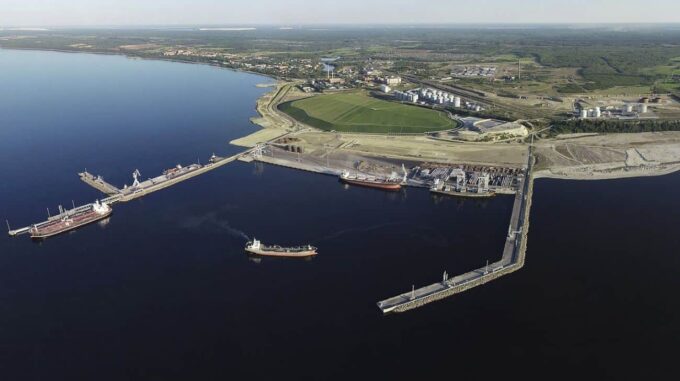Russia has officially detained a vessel for the first time after it previously left Estonian ports — this incident has become a historic event in the modern history of the region

On May 18, a Greek oil tanker, Green Admire, which was sailing under the Liberian flag towards the Sillamäe port, was detained within Russian territorial waters. This is the first significant incident involving a vessel that had previously departed from an Estonian port, clearly signaling a new trend of escalating conflict in the Baltic Sea region. According to an official statement from Estonia’s Ministry of Foreign Affairs, the incident occurred within Russia’s territorial waters, where the vessel was moving along a pre-approved route. Estonian foreign policy representatives noted that this route was chosen based on maritime safety considerations and does not violate international rules, as it was coordinated with Russia and Finland. The statement emphasizes that the precedent was triggered by new challenges in maritime security, and therefore, to prevent similar incidents in the future, ships heading to Sillamäe will be redirected through open waters of Estonia, avoiding dangerous areas near the Russian coast. Estonia’s Foreign Minister, Margus Tsahkna, told journalists that such unpredictable actions by Russia once again demonstrate its unpredictability in maritime policy. He also stated that Estonia has already informed its allies in the European Union and NATO about the situation, underscoring the need for joint efforts to ensure maritime safety in the region. This marks a new milestone in a long series of tense confrontations in the field of maritime geopolitics. Just days prior, Estonian military tried to stop another vessel — the tanker Jaguar, which was moving in international waters of the Gulf of Finland toward the Russian port of Primorsk, a location traditionally used for cargo deliveries and shipments into Russia. According to Estonian border guards and military, the tanker’s crew refused to obey orders and attempted to break through in international waters, leaving Estonian transit waters but not entering the Russian port. Western sources indicate that this tanker is on the UK’s sanctions list, which includes economic restrictions and trade bans with this vessel. Russia’s reaction was to send a fighter jet, which, according to Estonian reports, violated Estonian airspace. This was another manifestation of regional tension and a clear demonstration of the potential escalation of the current confrontation between Russia and the Baltic countries and Western allies. The situation currently remains tense. Estonian officials have again emphasized that Russia remains an unpredictable partner in maritime affairs and called on international allies to unite in response to these new challenges. Issues concerning maritime security, vessel protection in the Baltic Sea, and efforts to counter sanctions circumvention are regularly discussed. This is the first case of open detention of an Estonian vessel by Russian military or border guards, which has sparked broad resonance in diplomatic and military circles across Europe. Against the backdrop of increasing regional tension, such incidents cast doubt on the geopolitical stability and lay the groundwork for further confrontation in the Baltic Sea maritime space. Clearly, diplomatic and military structures are already working to find ways to de-escalate the situation, but real threats are growing along with the frequency and scale of similar incidents.

